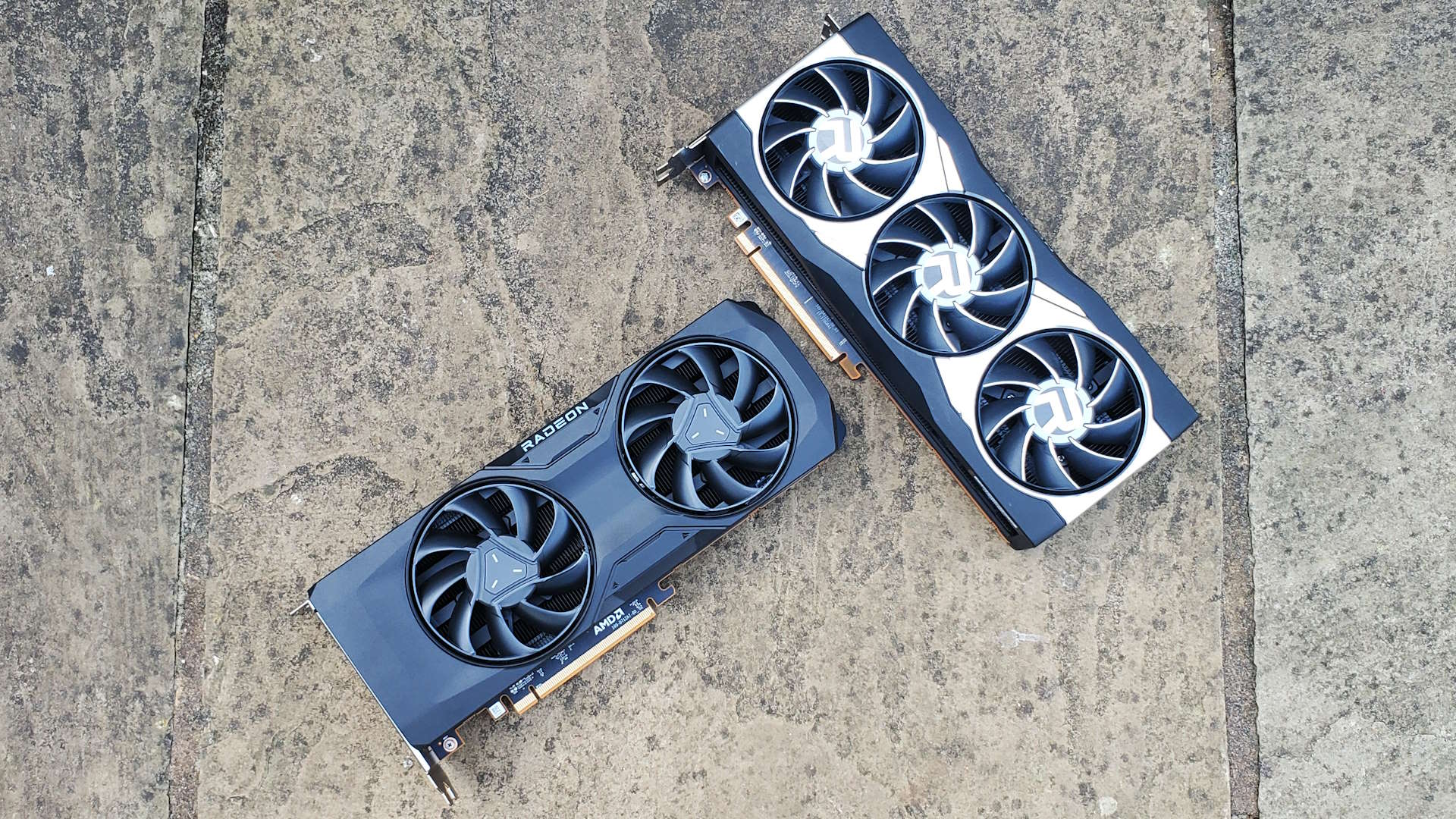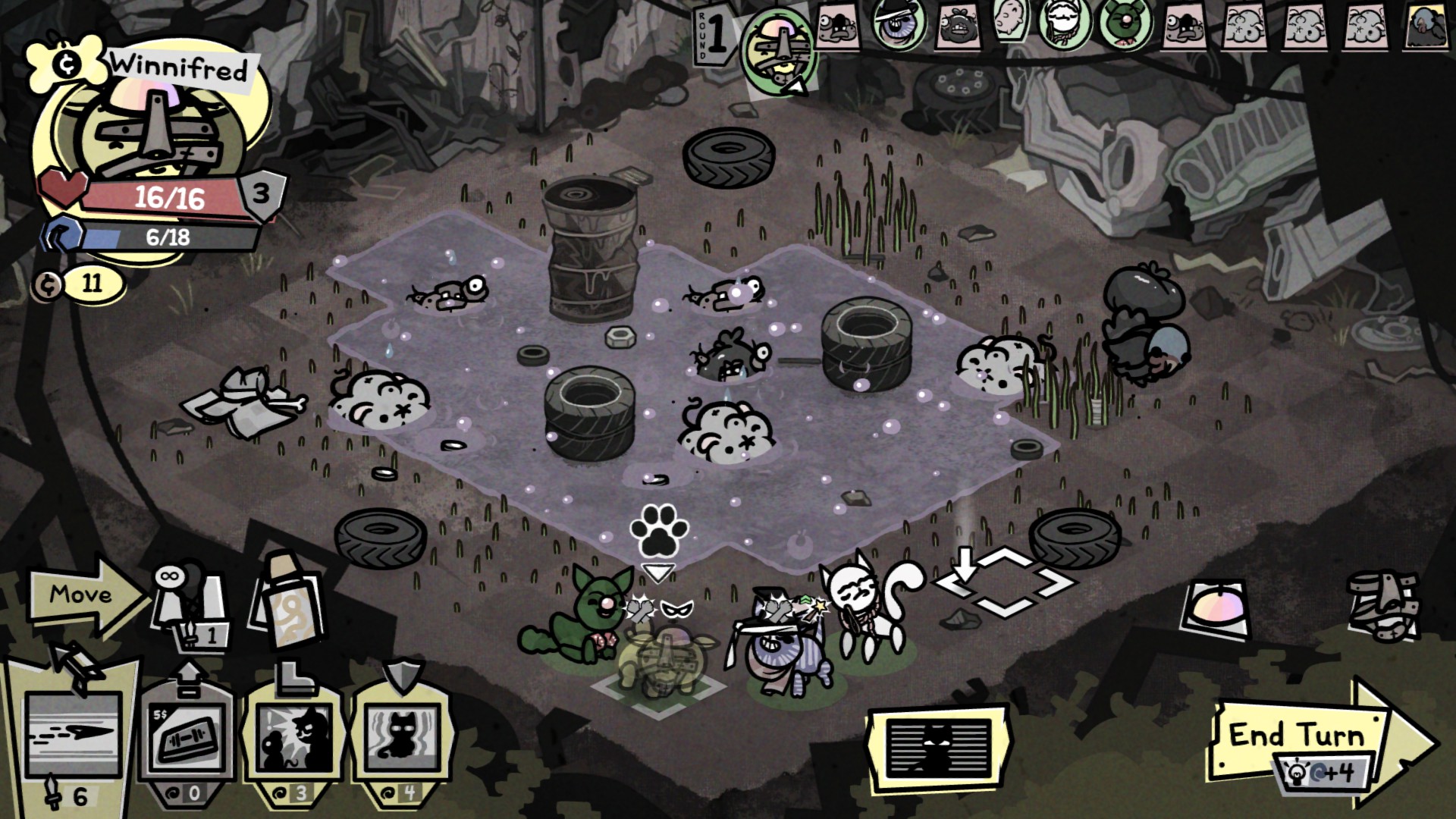AMD posts record revenues and says RDNA 4 is 'on track' for early 2025, but why are gaming GPUs the one thing it can't get right?
A gamble on chiplets that didn't pay off, yet...

Keep up to date with the most important stories and the best deals, as picked by the PC Gamer team.
You are now subscribed
Your newsletter sign-up was successful
Want to add more newsletters?

Every Friday
GamesRadar+
Your weekly update on everything you could ever want to know about the games you already love, games we know you're going to love in the near future, and tales from the communities that surround them.

Every Thursday
GTA 6 O'clock
Our special GTA 6 newsletter, with breaking news, insider info, and rumor analysis from the award-winning GTA 6 O'clock experts.

Every Friday
Knowledge
From the creators of Edge: A weekly videogame industry newsletter with analysis from expert writers, guidance from professionals, and insight into what's on the horizon.

Every Thursday
The Setup
Hardware nerds unite, sign up to our free tech newsletter for a weekly digest of the hottest new tech, the latest gadgets on the test bench, and much more.

Every Wednesday
Switch 2 Spotlight
Sign up to our new Switch 2 newsletter, where we bring you the latest talking points on Nintendo's new console each week, bring you up to date on the news, and recommend what games to play.

Every Saturday
The Watchlist
Subscribe for a weekly digest of the movie and TV news that matters, direct to your inbox. From first-look trailers, interviews, reviews and explainers, we've got you covered.

Once a month
SFX
Get sneak previews, exclusive competitions and details of special events each month!
Why are gaming GPUs for PCs the one thing AMD just can't get right? That's the multi-billion-dollar mystery following AMD's latest earnings call for professional bean counters (via Seeking Alpha) despite a promise that the chip maker's next-gen RDNA 4 graphics is on track for early 2025.
AMD's Lisa Su, celebrating her 10th anniversary as CEO, explained that the company's revenues have hit a record high in the third quarter of this year at $6.8 billion. That was achieved courtesy of healthy increases in revenues across data centre CPUs and GPUs, plus CPUs for client PCs and laptops.
But once again, Su had to concede that gaming revenues were down. In AMD parlance, "gaming" means a combination of graphics cards for PCs and custom APUs for games consoles, most obviously the Microsoft Xbox and Sony PlayStation.
All told, AMD said revenue for gaming fell fully 69% year-on-year to $462 or well under 10% of AMD's overall revenues. That sounds catastrophic, and it kind of is. However, much of that is down to the inevitable cyclical slump in console sales as the two big beasts from Sony and Microsoft continue to age.
Su pointed to the upcoming PS5 Pro as a cause for optimism in the near term. But as for PC graphics cards specifically, unfortunately AMD doesn't break out the numbers separately.
Su would only say that, "revenue declined year-over-year as we prepare for a transition to our next-gen Radeon GPUs based on our RDNA 4 architecture. In addition to a strong increase in gaming performance, RDNA 4 delivers significantly higher ray-tracing performance and adds new AI capabilities. We are on track to launch the first RDNA 4 GPUs in early 2025."
The thing is, AMD has been reporting non-specific declines in PC gaming graphics for about as long as we can remember now, while third-party analysts continue to report declining market share for the company versus the only other significant player in the market, Nvidia.
Keep up to date with the most important stories and the best deals, as picked by the PC Gamer team.
For a company that seems to be executing so well on so many fronts, AMD's inability to get PC GPUs right is a bit of a mystery. One possible explanation is that AMD made a big bet moving to a chiplet architecture that didn't pay off.
Instead of producing GPUs using a single large silicon die, AMD decided to split them into smaller pieces. That approach has paid huge dividends for AMD with CPUs. It makes CPUs cheaper and more easily configurable. But getting chiplets to work with GPUs is a very different challenge.
AMD's RDNA 2 graphics, the Radeon RX 6000 series, was a monolithic design and reasonably competitive across all market segments. But RDNA 3, which made that radical move to chiplet engineering for the RX 7700, 7800 and 7900 model ranges, has proven much less so.

Best CPU for gaming: The top chips from Intel and AMD.
Best gaming motherboard: The right boards.
Best graphics card: Your perfect pixel-pusher awaits.
Best SSD for gaming: Get into the game ahead of the rest.
What's more, by all accounts AMD has reversed course for RDNA 4, moving back to a simpler monolithic approach to GPU design that won't target the very high end. The implication is that AMD was originally planning to double down on chiplets for RDNA 4, but was forced to rethink late in the development cycle. And that meant it didn't have time to engineer a traditional big monolithic GPU.
For now, most rumours imply that AMD will have another go at chiplets with RDNA 5. But that really does remain to be seen. All we know for sure is that PC graphics is the one blot on AMD's otherwise near flawless copybook.
Of course, you could also argue that AMD's attention has been elsewhere of late, particularly now that the company says revenues from AI GPUs for training and inferencing have gone from pretty much zero to matching CPU revenues from servers, the cloud and PCs combined in the space of just one year.
But the failure of PC graphics is still an odd anomaly for a company generally experiencing roaring success. At least AMD isn't short of a penny if it wants to fix that. Here's hoping it does and it will.

Jeremy has been writing about technology and PCs since the 90nm Netburst era (Google it!) and enjoys nothing more than a serious dissertation on the finer points of monitor input lag and overshoot followed by a forensic examination of advanced lithography. Or maybe he just likes machines that go “ping!” He also has a thing for tennis and cars.

